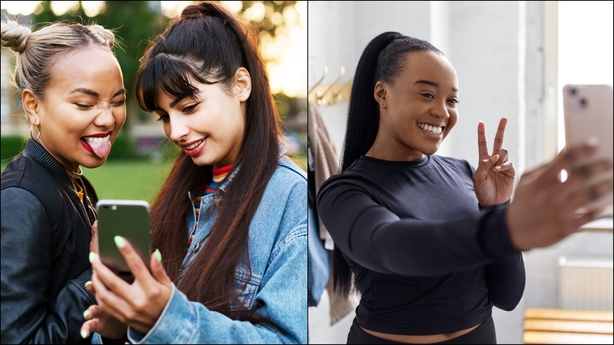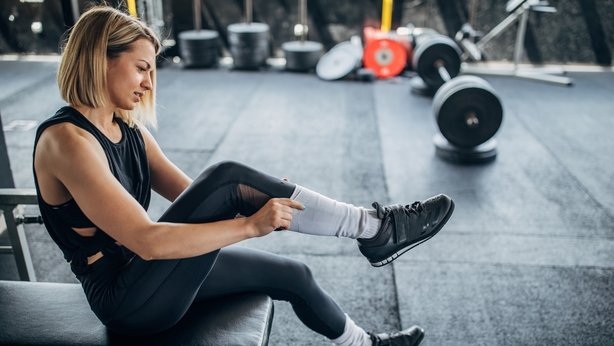Entertainment
Kate Demolder: How millennials became the uncool generation

Was it low-rise jeans, main character syndrome, or simply caring too much? Kate Demolder writes.
“How many lame millennial things have you done?” a BuzzFeed quiz from February 2021 reads, before instructing readers to place a tick next to every statement that sounds like you.
The statements detail skinny jeans, side parts, #girlboss hashtags and the word ‘adulting’, for the final tally to eventually decide how millennial, and therefore cringe, you are at this moment in time.
This, if you’ve spent any time online of late, chimes with the current trend of millennial mockery––for their choices when it comes to fashion, food, vocabulary and technology use.
“Styles that age millennials,” a recent caption might read, followed by a list of fashion faux pas that usually involve people wearing jeans in embarrassing ways, or opting for an ankle boot when the correct answer is decidedly knee-high.
The root of this is of course that it’s fun to mock people for what they wear; it’s an Irish love language, and whole Twitter threads exist on the topic. But this is perhaps the first time in my lifetime it’s been insisted that older people pivot to the needs of younger people.
Indeed, it’s certainly the first time that these older people are falling for it.
At 43 at their apex and 28 at their junior, millennials are now at a stage where they are trying to cope with getting old. “I Refuse the Graceful Slide Into Cultural Irrelevance,” New York Times contributing editor Jessica Bennett writes on the topic.
“What are ‘millennial socks’ and are they really a crime against fashion?” another headline from the Guardian reads. This inevitability comes around for any demographic, naturally, but the reason millennial age-denial is so heightened is because they are the first generation to get old on display.
As the first generation to grow up with the internet in their pockets––for example: I, a 31-year-old millennial got my first phone with internet at 15––we have been acutely tracked from adolescence to adulthood, in ways both unflattering and perverse.

There is a reason the Boomer Generation say things like “thank god we didn’t have the internet growing up,” and the reason is this: their every move, choice, haircut and faux-pas weren’t trackable for generations to come.
“Middle-aged” is a complicated label for any generation that reaches it. But for millennials, a group that has spent the first half of their lives being courted, tracked and scrutinised, the term has become a particularly hard pill to swallow. (Or, as TikTik would make you believe, a tough ankle sock to wear.)
You’d think millennials would be used to it, of course, given that derision has been their default state for some time now. According to recent headlines, millennials are responsible for killing mayonnaise, the beer industry, cable TV, diamonds, department stores, chain restaurants, the car industry, the diamond industry, cinema, cereal, marriage, doorbells, motorcycles, fabric softener, hotel-loyalty programs, casinos, Goldman Sachs, serendipity, and capitalism at large.
They also are, if you believe everything you read on the subject, entitled, self-obsessed, lazy and incompetent. Just ask author Mark Bauerlein, whose 2008 book The Dumbest Generation: How the Digital Age Stupefies Young Americans and Jeopardizes Our Future regularly sells under its secondary title: Don’t Trust Anyone Under 30.

Of course, millennials aren’t the first generation to age out of cool; the phrase “OK, Boomer,” has been popularised so much that official merchandise was made. But at a time when everyone’s locale has become one and the same––the internet––the ravages of age (or at least being slightly older) have felt particularly confronting.
And, at a time when the traditional trade-offs of natural progression no longer exist––children, housing, decent pensions––the jarring nature of becoming uncool prickles indecently again.
Recently, I’ve wondered why millennials listen to the Gen Zs who deride them. Is it because it’s better to be talked about than not? Is it because we’re all looking out for the next fast-tracked, largely executive-led trend like crying girl makeup, or unexpected red? Or is it because a false dichotomy exists online whereby older is considered “bad” and younger is considered “good”? (One look at Pamela Anderson, Naomi Campbell, Chloë Sevigny, Monica Bellucci or Lauren Hutton proves that does not exist in real life.)
Throughout engines of culture, such systems might simply persist in spite of us: the world keeps spinning, time races onwards, and one day you’ve got wide-leg jeans, and then skinny jeans, and then wide-leg again, until you can’t remember how you liked your denim to begin with. Or where you are in the middle-to-side-part continuum that spins around and around, always, until death.
Nobody is immune to the ticking of the clock, and Gen-Z’s time too shall come. With that in mind, I am personally of the belief that trying hard to obtain the cultural stamp of approval from people five to ten years younger than you is the uncoolest thing of all.
And while we’re all guilty of pandering to public opinion––lest we forget the dip-dyed hair and Live Strong bracelets of the noughties––no trend should be taken too seriously, not least if it’s told to you by a fifteen-year-old with a TikTok account.

I recently found myself crippled with the understanding that I look uncool and, thus, invisible to a group of teenage girls in the gym. They were wearing matching crop tops and shorts sets, and, I, a pair of untrendy runners and ill-fitting gym shorts that showed my age. I pulled at them in the mirror as the girls scrolled TikTok, desperately trying to appear cool, hot, anything to a group of people I didn’t know.
Until, I noticed the way they looked at themselves in the mirror: with that same look of immediate panic one learns when trying to fit in as a 17-year-old. I smiled to myself, thinking that they’ve got enough going on to worry about me, a 31-year-old woman, free enough to wear clothes in a functional way rather than for redirection.
And with that, I readjusted my socks, deleted TikTok and thought to myself: ‘Thank God we didn’t have that growing up’.
The views expressed here are those of the author and do not represent or reflect the views of RTÉ.










